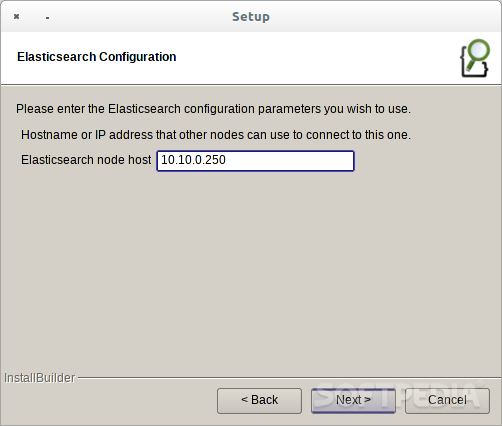Elasticsearch For Mac
| #!/usr/bin/env sh |
| # checks to see if running |
| launchctl list | grep elasticsearch |
| launchctl unload ~/Library/LaunchAgents/homebrew.mxcl.elasticsearch.plist |
| launchctl remove homebrew.mxcl.elasticsearch |
| pkill -f elasticsearch |
| rm -f ~/Library/LaunchAgents/homebrew.mxcl.elasticsearch.plist |
| brew uninstall elasticsearch |
| # double check existence |
| ls -al /usr/local/bin/elasticsearch* |
| ls -al ~/Library/LaunchAgents |
commented Dec 15, 2015
- Elasticsearch is as a.tar.gz archive for Linux and MacOS. This package is free to use under the Elastic license. It contains open source and free commercial features and access to paid commercial features. Start a 30-day trial to try out all of the paid commercial features.
- Run the latest version of the Elastic stackwith Docker and Docker Compose. It will give you the ability to analyze any data set by using the searching/aggregation capabilities of Elasticsearch and the visualization power of Kibana. Based on the official Docker images from Elastic.
Elasticsearch, Kibana and Logstash together makes ELK stack and in this tutorial, we will be installing and setting up ELK stack. I have Mac Sierra and we will be setting up this stack locally for development purpose.On the official elastic website, we already have the.zip files available and instructions available to set it up but we will be using Homebrew for the installation as there are.
Note to self: I followed this in order to cleanly upgrade from 090 to 2.x and since I had incompatible index mappings I needed to delete all the data before I was able to cleanly start the newer version. |
commented Jan 6, 2016

Same things Here. |
commented Feb 29, 2016
Thanks ... nice commands. |
commented Dec 9, 2019
Elasticsearch For Mac Os
Just wanted to add one more thing after uninstall elasticsearch/logstash/kibana with above commands, please remove those directories from /usr/local/etc and then try to install them from scratch again. Above commands work well to uninstall but without removing ELK directories it will not allow user to reinstall ELK stack properly. |
commented Dec 28, 2019 •
I had to remove data, logs, plugins and config for brew elasticsearch to work properly rm -rf /usr/local/var/lib/elasticsearch/ |
Elastic publishes Homebrew formulae so you can install Elasticsearch with theHomebrew package manager.
To install with Homebrew, you first need to tap theElastic Homebrew repository:
Once you’ve tapped the Elastic Homebrew repo, you can use brew install toinstall the default distribution of Elasticsearch:
This installs the most recently released default distribution of Elasticsearch.To install the OSS distribution, specify elastic/tap/elasticsearch-oss.
When you install Elasticsearch with brew install the config files, logs,and data directory are stored in the following locations.

| Type | Description | Default Location | Setting |
|---|---|---|---|
home | Elasticsearch home directory or |
| |
bin | Binary scripts including |
| |
conf | Configuration files including |
| |
data | The location of the data files of each index / shard allocated on the node. Can hold multiple locations. |
|
|
logs | Log files location. |
|
|
plugins | Plugin files location. Each plugin will be contained in a subdirectory. |
|
You now have a test Elasticsearch environment set up. Before you startserious development or go into production with Elasticsearch, you must do some additionalsetup:
- Learn how to configure Elasticsearch.
- Configure important Elasticsearch settings.
- Configure important system settings.
Elasticsearch Format _source
Most Popular
